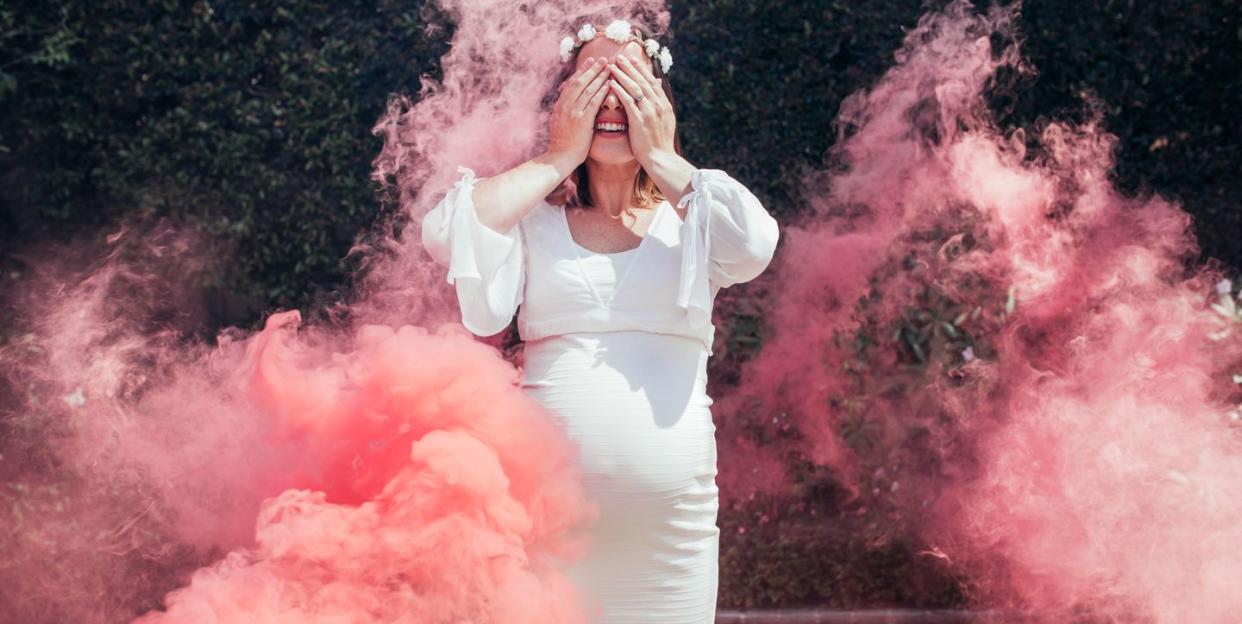I Had a Gender Reveal Party, But Now I Think It Was a Big Mistake

In 2015, when I was pregnant with my first child, I had a gender reveal party. It wasn’t my idea — a friend in my book club wanted to try out a new baking trick: baking candy into cupcakes. At our next meeting, we broke into the cupcakes and saw that the candy was blue (it’s a boy!). Then we went back to not talking about the assigned book. All in all, it was a very sweet gesture and felt fairly harmless. There were no bowties or fishing rods, no grand pronouncements about my son’s future interests or identity.
For a long time, whenever someone would gripe about gender reveal parties, I would hold up my own as an example that they didn’t have to be a big deal. As I saw it, excess was the real problem — the flagrant stereotypes, the random sexualization of an unborn baby like it was some kind of bachelor party. If a party didn’t have those elements, I was fine with it.
Besides, my husband and I wanted children very much. We asked to learn the sex of our baby as soon as it was clear to our medical team. For me, learning that I was having a boy was when it really sunk in that I was having a baby. It didn’t feel so wrong to celebrate that.
But over the next two years, something shifted in our culture — and in my ability to go along with the idea of gender reveal parties. For one thing, people began to go overboard with their announcements. A guy in Louisiana wrestled a live alligator, who then chomped through a Jell-O-filled balloon to share the news. People in Australia are deliberately courting car fires in pursuit of colored smoke. Worst of all, one family started a forest fire that caused $8 million worth of damage.
From a biological perspective, it has become clearer that sex is determined by anatomy while gender is a more fluid concept — meaning that “gender” reveal party is a bit of a misnomer.
One of the best arguments for doing away with gender reveal parties is that they isolate and hurt people who don’t conform to traditional gender roles. I’ve known trans and genderqueer folks since college and have long been aware that some people fall outside of the gender binary, a concept that there are only two options — male or female — based on a person’s reproductive anatomy.
In 2017, I wrote an email to my friend Les, who identifies as non-binary and uses they/them pronouns. “There are some people who will make too big of a deal about anything,” I wrote. “These are the people who throw elaborate and hypersexualized gender reveal parties, just like they throw elaborate and hypersexualized bachelor/ette parties. For those people, the parties are the least of their problems in my view.”
Les, who transitioned in middle age and is an internationally known advocate for gender-free contra dancing, cautioned that there is a more sinister undertone to these events. “Gender reveals can also hurt,” they wrote back. “It isn't just about what parents are imposing on their child, it's the information that this conveys [within the culture]: the idea that genitals equals gender and that gender is a tiny box that everyone is supposed to fit in.” When they put it that way, I couldn’t argue.
That year, I was pregnant again. My book club didn’t offer to throw me another gender reveal party, probably out of apathy rather than politics, and I didn’t miss it. My two little kids are boys, but if they change their identities — multiple times, even — I’ll support them. One of the big lessons of parenting is loving the child you have, not the one you imagined.
For can't-miss news, expert beauty advice, genius home solutions, delicious recipes, and lots more, sign up for the Good Housekeeping newsletter.
You Might Also Like

